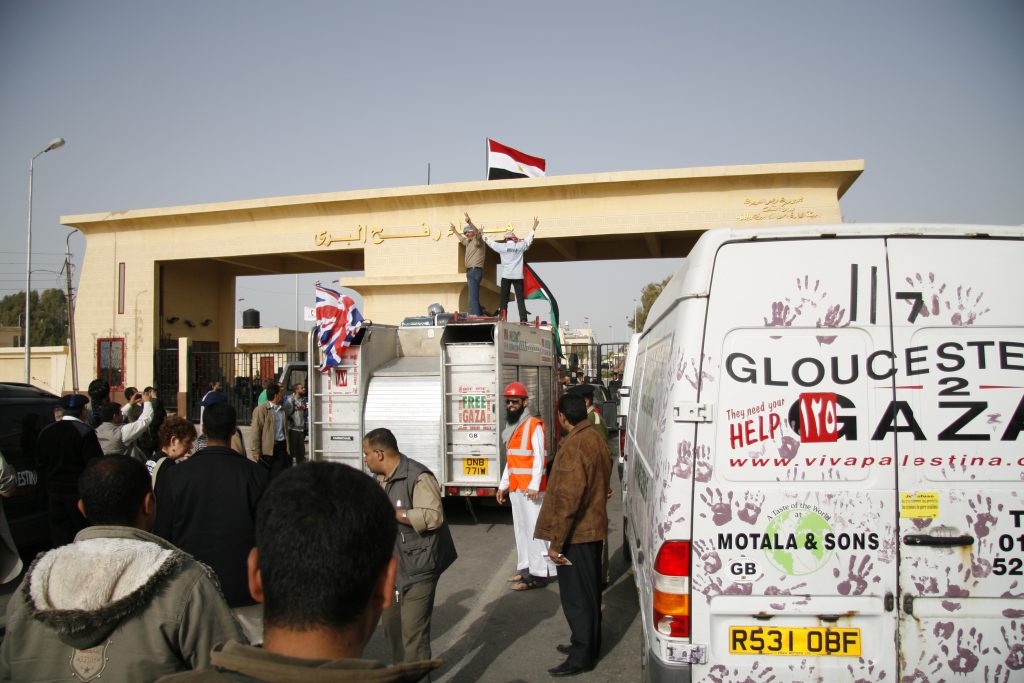The Egyptian government received much praise from world leaders, including Angela Merkel and Joe Biden, for its role in brokering the ceasefire agreement that followed Israel’s 11-day offensive over Gaza last May. Egypt’s humanitarian rhetoric on this occasion is surprising given that President al–Sisi tightened the blockage on Gaza during the Israeli military offensive in 2014.
Following the ceasefire, al–Sisi announced humanitarian measures and USD 500 million in reconstruction aid. On 16 May, the Egyptian authorities opened the Rafah crossing – the land access between Egypt and Gaza – allowing access to medical care in North Sinai, where they sent a medical convoy to treat injured Palestinians. Amongst the medical staff, Dr Hossam Eddin Shaaban was forcibly disappeared for two weeks after he criticised the absence of protests in support of the Palestinian people, which is banned under the Protest Law.
A wolf in sheep’s clothing
The Egyptian authorities have been opening and closing the Rafah crossing on an ad hoc basis since the 2005 Agreement on Movement and Access, although Israel maintains substantial control over the terminal. Egypt is therefore complicit in Israel’s 14-year-long blockade on the Gaza Strip, in exchange of little, non-threatening gains such as having humanitarian aid in, or brokering in ceasefire efforts. In this regard, Egypt also contravenes its obligations under the Fourth Geneva Convention (among others, the prohibition to impose collective punishment and denying passage to medical teams), which Israel violates by imposing a collective punishment on Palestinians in Gaza.
Egypt has breached international law several times by using excessive and lethal force, shooting at Palestinian fishermen who reportedly reached the Egyptian waters. On 25 September 2020, two fishermen were killed, and one was injured and detained by the Egyptian army for five months.
Deplorably, the Egyptian authorities continue to suppress freedom of expression of Egyptians supporting Palestinians’ rights. Omar Morsi and Nour al Hoda Zaki were arrested for raising the Palestinian flag on Tahrir Square, while pro-Palestinian demonstrations were being held around the world. Additionally, Ramy Shaath, an Egyptian-Palestinian political activist, leader of the Boycott, Divestment and Sanctions movement in Egypt, has been arbitrarily detained for almost two years for defending Palestinian rights.
The perception that Egypt is a key player for security and stability in the region conveniently fits the regime’s narrative. Yet, appreciating the Egyptian diplomatic efforts in reaching a ceasefire and providing humanitarian support to Gaza should not overshadow the Egyptian government’s human rights abuses.

